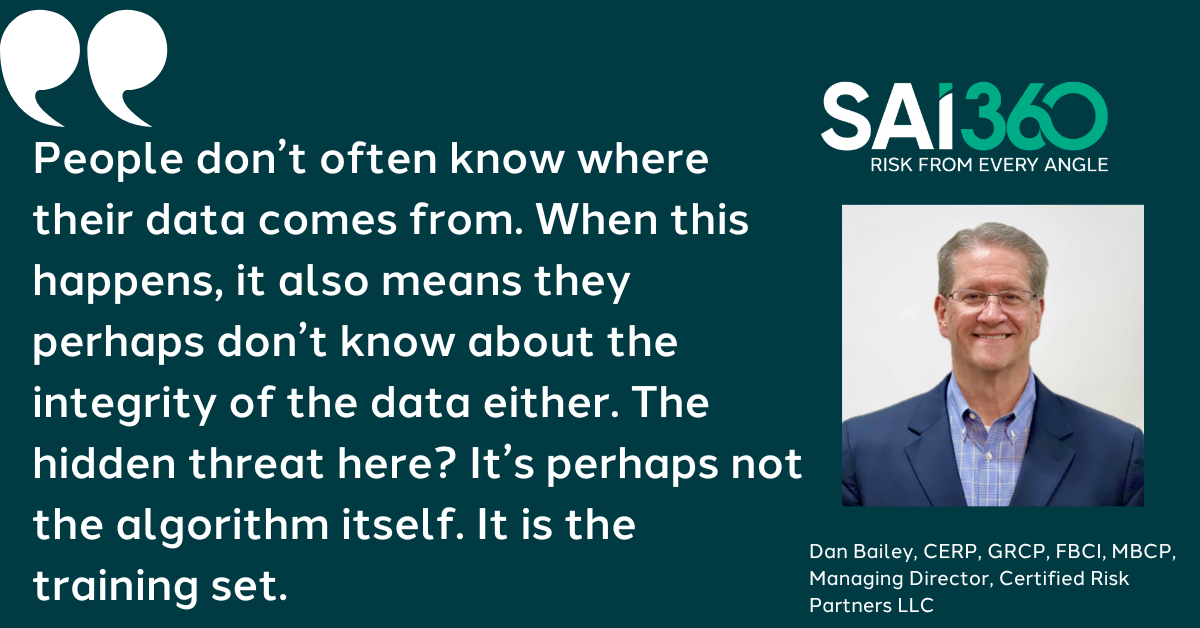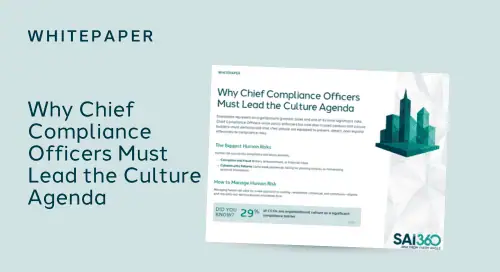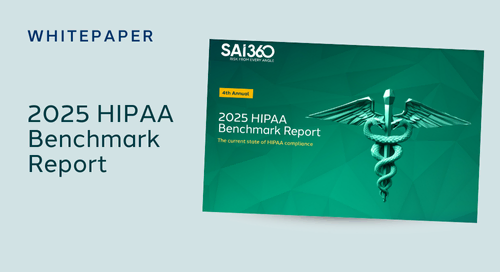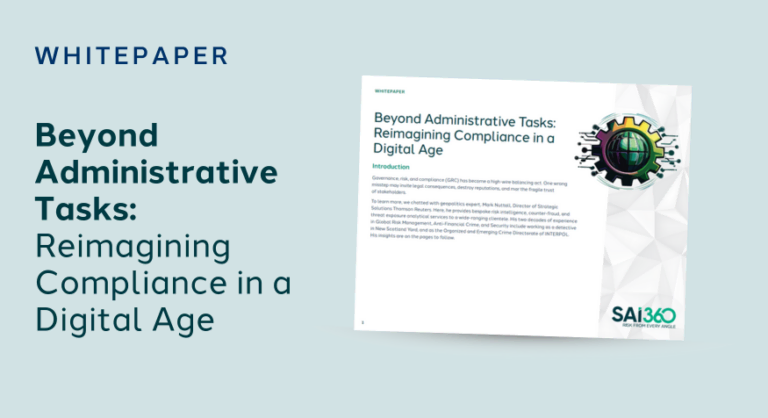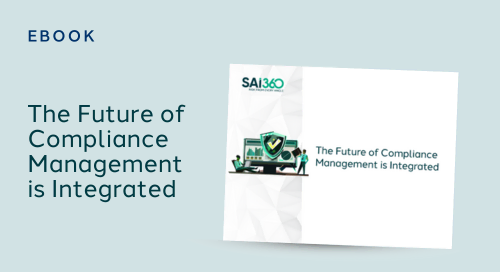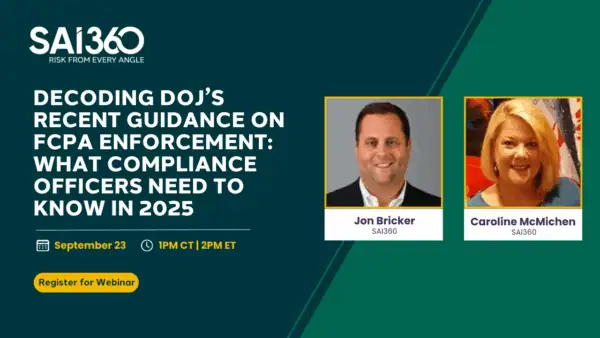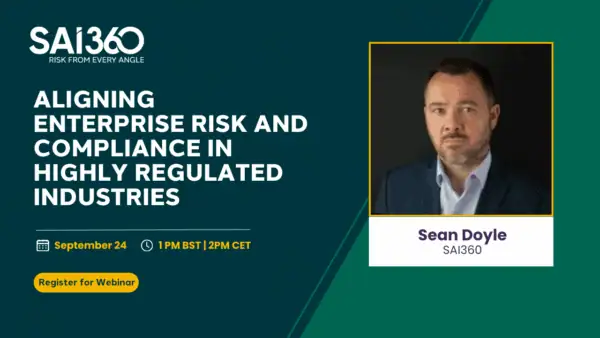Compliance Officer Day
Integrity in Action. Compliance in Every Step.
September 26, 2025
What’s National Compliance Officer Day?
Created in 2016 by SAI360, Compliance Officer Day celebrates the professionals who protect our organizations from shifting regulations and rising liability—whether they’re using a corporate code of conduct, maintaining a business continuity plan healthcare playbook, or vetting shiny new GRC tools for banking. On September 26 each year, spotlight your compliance team and recognize their work on social channels using #ComplianceOfficerDay alongside the SAI360 team.
Join Us in Celebrating Compliance Officer Day All Month Long
See some of our curated assets for Compliance Officer Day!
2025 is Raising the Stakes: 10 Compliance Trends to Know
2025 is a hinge year in compliance. Federal agencies are stretching decades-old statutes into new arenas just as they retract long-standing guidance. Meanwhile, states are racing ahead with their own rules, and automation is rewriting the compliance skill set faster than organizations can adapt. From business continuity finance planning to scalable business continuity plan for manufacturing industry templates, everything is evolving at lightning speed. Taken together, the landscape demands sharper foresight and nimbler programs than ever before.
1. The False Claims Act may get re-imagined
DOJ initiatives signal the statute will surface in sectors previously untouched, widening potential exposure.
2. Expect guidance gaps
Key agency memos and FAQs continue to vanish without replacement, forcing firms to fill the interpretation void themselves.
3. Anticipate a Section 1557 shake-up
Anticipated rule tweaks around discrimination in care delivery will prompt quick policy and training overhauls.
4. Plan for potential state supremacy
Devolving authority means organizations must juggle dozens of divergent state requirements, not just federal ones.
5. There may be penalty inflation ahead
Jurisdictions are adopting New York-style monthly fines that escalate until an “effective” program is proven.
6. Quieter regulators may be on the forefront
Fewer conference briefings from OIG and DOJ reduce informal intel on enforcement priorities.
7. Soft skill sets may be at a premium
Emotional intelligence and cross-functional persuasion now differentiate successful officers when rules are unclear.
8. Expect content-generation traps
Unvetted drafting tools can inject factual errors or unlicensed text that later becomes discoverable.
9. Expect expertise erosion
Over-reliance on automation risks hollowing out institutional knowledge exactly when auditors demand “show your method.”
10. Plan for model-risk governance
Even home-grown data models need lineage audits, executive ownership, and rollback protocols to stay defensible.
How did National Compliance Officer Day Start?
Formal compliance programs took root in the 1970s-80s and gained urgency after headline scandals in the 1990s. Today, with enforcement widening old statutes and states layering on their own rules, compliance officers sit closer than ever to the CEO and board. They reduce risk through clear controls, meticulous documentation, and the influential soft skills needed to steer change when external guidance disappears. Skills that also drive choices like deploying code enforcement software or rolling out best harassment training company-wide. SAI360 launched the Day in 2016 to honor that blend of vigilance and adaptability.

